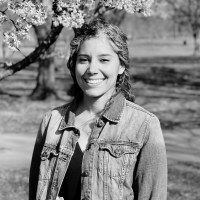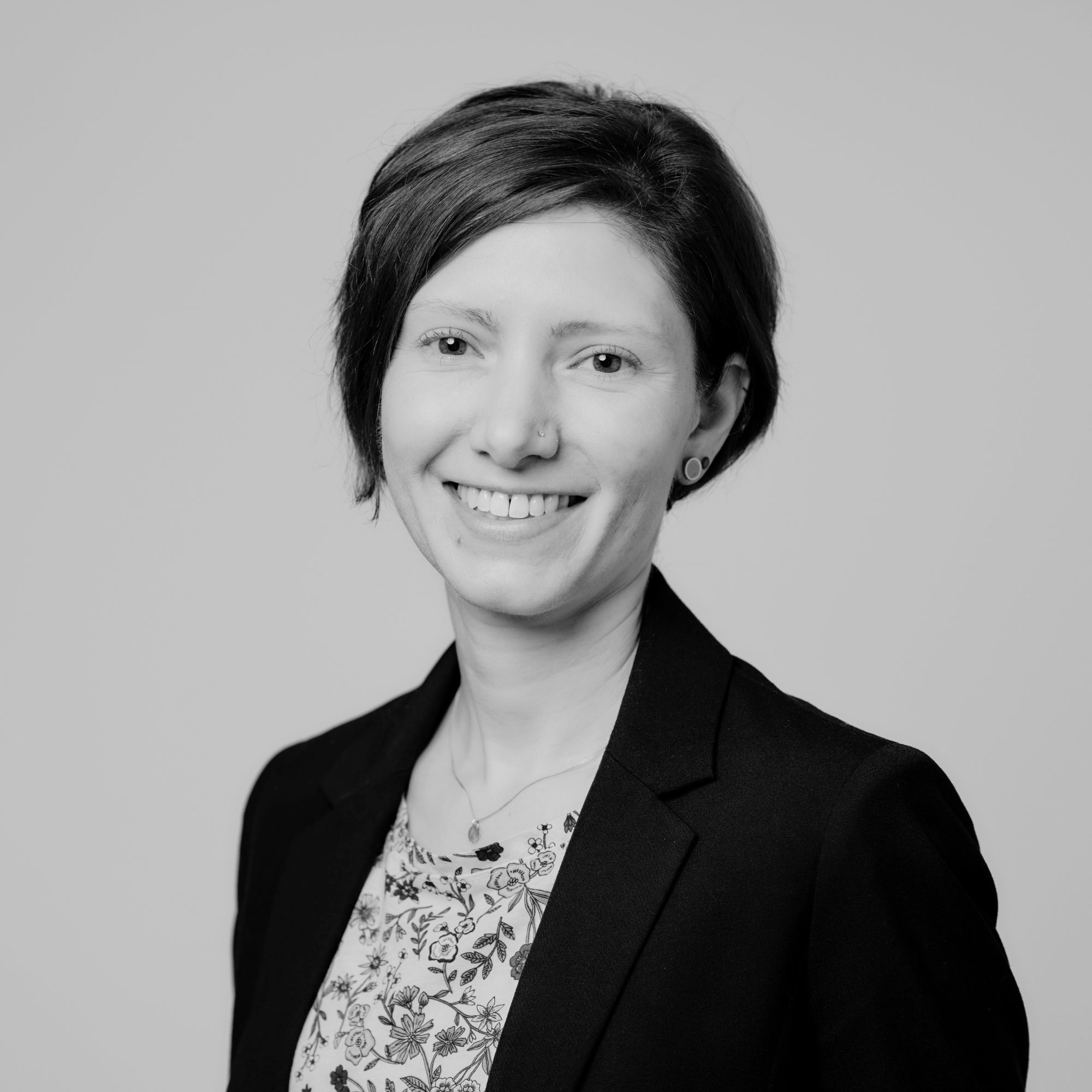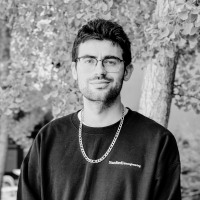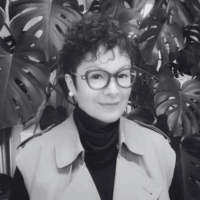12 research rising stars named CIFAR Azrieli Global Scholars

Meet the 2025-2027 cohort of early-career leaders ready to shape the future of research
The tenth cohort of CIFAR Azrieli Global Scholars is ready to tackle important and pressing questions facing science and humanity — from studying the design of safe and trustworthy AI systems to exploring the intricacies of ice and glacier meltwater.
This year, 12 emerging research leaders will join the 2025-2027 cohort of CIFAR Azrieli Global Scholars, marking the prestigious program's 10th anniversary. Since 2016, the CIFAR Azrieli Global Scholars program has empowered early-career researchers to strive for global impact by supporting opportunities for leadership development and championing bold ideas through deep, interdisciplinary collaboration.
This next-generation initiative, generously supported by the Azrieli Foundation, enables early-career researchers to expand their professional networks and pursue cutting-edge ideas with CAD $100,000 of unrestricted research funding.
Following a competitive recruitment process that generated 232 applications from around the world, the new cohort features top emerging global researchers based at institutions in Canada, the United States, Germany, Ireland and Israel. Their geographic diversity is enriched by additional countries of origin, including Austria, Romania, Sweden and the United Kingdom.
The Scholars will each join a CIFAR research program where they will participate as equal members within an international and interdisciplinary network of some of the world’s leading researchers, who are pursuing a fundamental research question together. This year’s cohort will contribute to the following programs: Boundaries, Membership & Belonging, Earth 4D: Subsurface Science & Exploration, Fungal Kingdom: Threats & Opportunities and Innovation, Equity & the Future of Prosperity.
“As we celebrate a decade of the program, it is inspiring to see how far this next-gen initiative has come in supporting early-career researchers on their academic pathways,” says CIFAR President & CEO Stephen Toope.
“I am honoured to welcome and congratulate the latest cohort of Global Scholars to our research community, and look forward to the bold ideas, discoveries and collaborations they’ll help spark at CIFAR.”
MEET THE CIFAR AZRIELI GLOBAL SCHOLARS, 2025-2027
Related Articles
BOUNDARIES, MEMBERSHIP & BELONGING

Feyaad Allie
Harvard University, United States
Feyaad’s research explores a central question in identity and democracy: How can governments create a political system inclusive of all social groups? His research focuses on the emergence and impact of minority political power, investigating what enables minority politicians to win elections and how this shapes their actions in office.

Debra Karhson
University of New Orleans, United States
Debra’s research centres on defining the brain biology of social connectedness by studying the role of endocannabinoids — naturally occurring, lipid-based neurotransmitters — in transitioning social interactions into social connections. Her work aims to improve the quality of life by leveraging the brain mechanisms for social connection to expand the human capacity for belongingness.

Roni Porat
The Hebrew University of Jerusalem, Israel
Roni’s research focuses on reducing prejudice and discrimination in divided societies, particularly in Israel, where Arab and Jewish communities must coexist amid ongoing conflict. By investigating how education, policies and daily interactions can challenge stereotypes, promote understanding and build more inclusive communities, her work aims to identify ways to reduce social tensions.
EARTH 4D: SUBSURFACE SCIENCE & EXPLORATION

Peter Crockford
Carleton University, Canada
Peter’s work seeks to understand how the Earth works, how it has changed over its 4.6 billion year history and how life has participated in shaping these changes. His research has produced an array of tools that can be applied to investigate existential questions, from how much life has ever existed to when the Earth’s metabolisms first emerged.

Melisa Diaz
The Ohio State University, United States
Melisa’s interdisciplinary research uses geochemistry to bridge physical, biological and social sciences. Her current area of focus is exploring how ice and glacier meltwater provide nutrients for coastal food webs (which affects local fishermen) and understanding how chemicals are stored in ice to prepare for upcoming space missions investigating icy moons in our solar system.

Oliver Warr
University of Ottawa, Canada
Oliver’s research investigates how novel scientific approaches quantifying and integrating “time and rates” can be harnessed to mitigate climate change and sustainably and equitably manage resources. By understanding how quickly natural fluids — including water, carbon dioxide, hydrogen and helium — move and migrate underground, safe and effective strategies can be developed to meet modern societal needs.
FUNGAL KINGDOM: THREATS & OPPORTUNITIES

Artem Babaian
University of Toronto, Canada
Biology is undergoing a revolutionary change driven by explosive data growth and improvements in AI to interpret that data. Artem’s research group develops state-of-the-art computational tools to re-analyze these data sets and answer critical questions, including what RNA viruses may be hidden around us and whether genes in fungi can be identified to make new cancer therapies.

Amelia Barber
Friedrich Schiller University Jena
Germany
Amelia’s research group studies how environmental fungi evolve, their ability to cause human disease and how they acquire drug resistance. As our climate changes and new fungal diseases emerge, understanding how environmental fungi acquire the ability to infect humans is of great importance.

Vayu Hill-Maini
Stanford University, United States
Moulds and mushrooms are critical for addressing some of the most pressing challenges of our time. Vayu’s lab studies the biology of fungi to uncover useful properties and to engineer these organisms to address sustainability challenges. Working closely with stakeholders such as food producers, his team aims to translate their findings into real-world impact.
INNOVATION, EQUITY & THE FUTURE OF PROSPERITY

Boróka Bó
University College Dublin, Ireland
Boróka is a sociologist who studies everyday life and how humans can spend more of their time living well. Her research explores how social and environmental factors shape people's well-being over time and across different places. She also examines how time influences how individuals and communities respond to climate change.

Serena Booth
Brown University, United States
Serena studies the design of safe and trustworthy AI systems, focusing on how humans specify what AI should do and how humans assess how AI makes decisions. Her work includes studying the best interpretations of different human-provided specifications, including mathematical instructions, preferences over AI system outputs, corrections to AI system behaviours and other forms. She then helps users understand what AI has learned.

Simone Zhang
New York University, United States
Simone examines how organizations make decisions that affect people’s life chances and access to opportunity. Her research focuses on the effects of emerging technologies like predictive algorithms and generative AI on who gets what, particularly in social policy and law. She aims to understand how these innovations shape societal inequalities and relationships between organizations and the communities they serve.